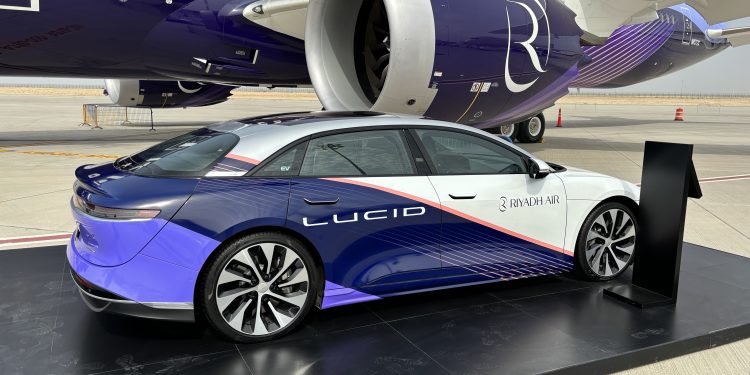The electric vehicle (EV) sector in Saudi Arabia is on the brink of remarkable expansion, anticipated to soar to a value of US$ 53,639.1 million by 2032 from a 2023 valuation of US$ 1,215.7 million. This growth is expected to occur at a stunning compound annual growth rate (CAGR) of 52.31%.
In comparison to other regions, the dynamism of the Saudi EV market is particularly notable, surpassing even advanced economies such as Australia and Singapore. This is credited to a combination of significant governmental funding, ambitious objectives, and escalating consumer interest in eco-friendly transport solutions.
The Saudi Arabian government is heavily investing in the EV sector, with plans to infuse around $50 billion into EV manufacturing over the next decade. Their commitment is underscored by the target of electrifying 30% of all new vehicles by 2030, which could result in the sale of approximately 912,010 EV units by 2032.
Market demand is being stimulated by several factors, including demographic growth, increased economic activities, and the burgeoning small and medium-sized enterprise (SME) sector which demands more commercial electric vehicles. Additionally, regional trends, such as the MENA region’s focus on EVs and the expansion of 5G networks, are contributing to the market’s growth.
In response to the essential need for charging infrastructure, the Saudi government launched the Saudi Electric Vehicle Charging Infrastructure Development Initiative (SEVCIDI) in 2021, targeting the installation of 50,000 charging stations by 2025.
Infrastructure development is also being driven by international partnerships and local investments. For instance, Lucid Motors collaborates with Saudi Arabia to build the nation’s first EV manufacturing plant. The National Industrial Development Center (NIDC) seeks to foster a robust domestic EV industry, while Siemens and Schneider Electric are working to expand the charging network with state-of-the-art ultra-fast chargers.
Riyadh, within the Northern and Central region, is poised to lead the Saudi EV market, aiming for 30% of all vehicles in the capital to be electric by 2030. Despite facing challenges such as the country’s oil dependence and the current scarcity of charging stations, the market outlook remains promising.
Passenger cars are dominating the market, accounting for more than 45% of the revenue share, driven by consumer preferences and governmental initiatives. The government is capitalizing on this trend by fostering collaborations to establish EV manufacturing bases and investing through the Public Investment Fund.
The Electric Vehicle Infrastructure Co. (EVIC) is spearheading the development of a fast-charging network, aiming to install 5,000 fast chargers at more than 1,000 locations by 2030. Partnerships, such as the joint venture between the Public Investment Fund (PIF) and Saudi Electricity Company (SEC), and the industrial license granted to Ceer, the nation’s first homegrown EV brand, highlight the strategic initiatives underway.
Toyota Motor Corporation, Hyundai Motor Company, Barq EV, and BMW AG are among the top competitors in the Saudi EV market, with significant market shares and strategic initiatives aligning with Vision 2030.
With a clear vision for economic diversification, environmental sustainability, and technological advancement, Saudi Arabia is rapidly building a sustainable and prosperous future through its commitment to the EV market.


